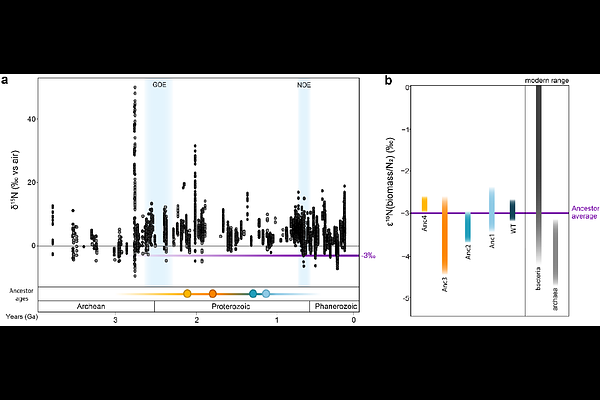Persistent nitrogenase isotope signatures over two billion years of engineered evolution

Persistent nitrogenase isotope signatures over two billion years of engineered evolution
Rucker, H.; Bubphamanee, K.; Harris, D.; Konhauser, K.; Seefeldt, L.; Buick, R.; Kacar, B.
AbstractNitrogen isotope fractionation (e15N) in sedimentary rocks has provided evidence for biological nitrogen fixation, and thus primary productivity, on the early Earth. However, the extent to which molecular evolution has influenced the isotopic signatures of nitrogenase, the enzyme that catalyzes the conversion of atmospheric nitrogen (N2) to bioavailable ammonia, remains unresolved. Here, we reconstruct and experimentally characterize a library of synthetic ancestral nitrogenase genes, spanning over 2 billion years of evolutionary history. By engineering modern microbes to express these ancient nitrogenases, we assess the resulting e15N values under controlled laboratory conditions. All engineered strains exhibit e15N values within a narrow range comparable to that of modern microbes, suggesting that molybdenum (Mo)-dependent nitrogenase has been largely invariant throughout evolutionary time since the origins of this pathway. These results confirm the robustness of N-isotope biosignatures in the ancient rock record and bolster their utility in the search for life in extraterrestrial environments.